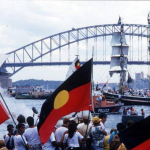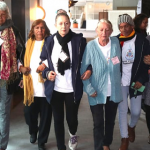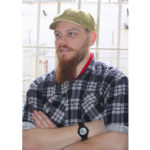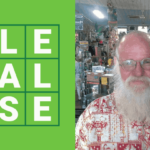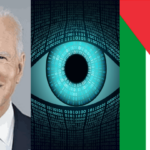Outrage Over Gang Rape Article
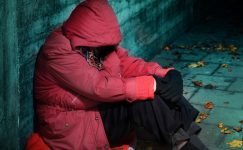
Senior journalist Paul Sheehan recently penned an apology for his negligent article featured in the Sydney Morning Herald last week, where he had detailed allegations of an horrific and violent gang rape of a Sydney nurse in 2002.
Mr Sheehan’s piece, The story of Louise: we’ll never know the scale of the rape epidemic in Sydney, was painful and compelling reading. Other experienced journalists swallowed every word of the story, saying they had cried while reading how “Louise” had pulled over in the St Mary’s Cathedral carpark after working a late shift at St Vincent’s Hospital, only to awake being dragged from her car, gang raped, beaten, and urinated on.
Louise reported she had spent months in hospital recovering. She explained she had spoken to homeless people who had witnesses the attack.
“A lot of homeless sleep down there because it’s near where the food van parks. One of them told me later, ‘I’ll never forget what happened when the MERCS got you. We thought you were dead’,” she told Mr Sheehan.
When pressed about what the term MERCS meant, Louise said that gang rape “had been going on for years and was so frequent it had a name: MERCs. Middle Eastern raping cunts. They would drive around William Street and Darlinghurst and pull prostitutes into the car.”
Mr Sheehan ignorantly and irresponsibly added that gang rape attacks carried out by Middle Eastern men was a root cause of the 2005 Cronulla riots. He provided little explanation for this bizarre and inflammatory statement despite in depth investigations tracing racial tensions between Arab and non-Arab Australian communities back to immigration after the Lebanese Civil War – documenting how they escalated after the 9/11 terrorist attacks amid a global culture of distrust – as well as the “triggering” events surrounding the alleged assault of a life guard just before the incidents and inciteful remarks of irresponsible radio commentators like Alan Jones.
Louise said she tried to report her rape to NSW Police officers who refused to listen to her claims.
After publication, Louise’s story unravelled quickly and dramatically.
“I learnt that a woman had made very similar claims of rape during two rallies last year organised by Reclaim Australia, which opposes militant Islam. When I sought to speak to Louise about this she was unresponsive,” Mr Sheehan said.
Reading Mr Sheehan’s retelling of Louise’s story, several red flags should have been obvious to a journalist of his experience and the editors who allowed the story to run. Several other media outlets have produced detailed explanations about where the story failed.
The outrage has been swift and frenzied, as is often the case in the social media age. Advocates against Islamophobia and violence against women pointed out Mr Sheehan’s apology only really addressed the damage his article did to the reputation of NSW Police.
Mariam Veiszadeh, President of Islamophobia Register Australia tweeted, “I’m furious about this!”
New Matilda also lashed out: “Even by Fairfax’s low standards, their latest Paul Sheehan rant was gratuitously racist. And as it turns out, it was also patently false and bone jarringly stupid.”
Mr Sheehan’s Fairfax colleague Jenna Price did her homework. She said “a quick check of Sheehan’s work over the last year” found “more than 30 mentions of Islam or Muslims in 30 different stories and there is nearly always a faint air of menace”.
An ABC article by feminist Amy Gray reports how Mr Sheehan’s article is devastating for women who struggle to report rape.
“Publishing a completely unchecked allegation of rape is not only extremely damaging to journalistic standards and reputation (explored in some depth by the Columbia School of Journalism after the Rolling Stone campus rape debacle), it’s catastrophic for sexual assault victims,” said Ms Gray.
According to the Australian Institute of Family Studies, false reports of rape are not common. Interlinking factors—social norms and stereotypes of gender roles—influence a common misconception that women often lie about sexual assault.
While there have been strong and deserving calls for comprehensive apology from Mr Sheehan and the Sydney Morning Herald on behalf of the victims of rape, the victims of false accusations based on racism, there has been another, less vocal, group also deserving of an apology—the homeless.
The story of Louise’s rape uses rough sleepers as anonymous witnesses and vehicles for hate-filled Reclaim Australia propaganda.
Mr Sheehan seems to have accepted that homeless people should be anonymous and did not use their names to report Louise’s story. It seems he neglected to find them to ask what they saw, despite the fact Louise said she managed to track them down after the incident.
Mr Sheehan says he failed to research the story adequately because he had empathy for Louise.
“She did provide detail, consistency and conviction. She did speak with an authentic voice about the milieu of homelessness, drug addiction and prostitution in and around Kings Cross and Darlinghurst.”
His apology outlined the facts he had attempted to verify. “I had what I thought was an understanding that Louise was seeking justice, and that I would be helping her,” he said.
Surely following up with witnesses to the event would help to support Louise’s story?
Unfortunately, people who are homeless are rarely given a voice and are often used as scapegoats. Estimates of the proportion of homeless people who are eligible but not registered to vote vary from 33 to 90 per cent and when the homeless are featured in the mainstream media, they are often stereotyped or included because of their homelessness, rather than their views.
Perhaps a morning spent talking with the people who sleep rough around St Mary’s Cathedral without results might have prompted Mr Sheehan to do some extra fact-checking, which would have saved him—and the people his story has affected—a whole lot of grief.

